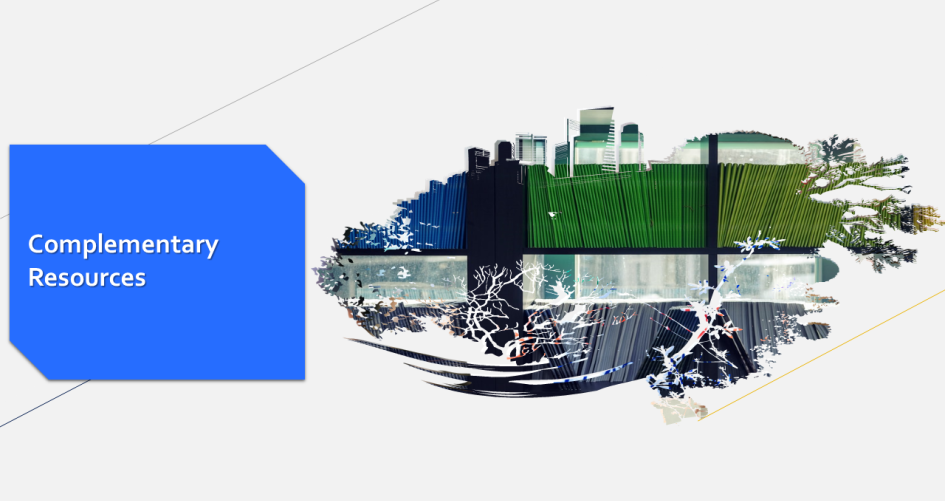|
Adaptation Clearinghouse
Content in the Adaptation Clearinghouse is focused on the resources that help policymakers at all levels of governments reduce or avoid the impacts of climate change to communities in the United States. The Adaptation Clearinghouse tends to focus on climate change impacts that adversely affect people and our built environment.
|
|
Adaptation Knowledge Portal
The Adaptation Knowledge Portal builds on the worldwide contributions of policy-makers, practitioners and researchers to offer first-hand information and actionable knowledge on climate change adaptation
|
Adaptation Learning Mechanism
The ALM is collecting good practices, providing information, sharing knowledge, and building networks on climate change adaptation |
|
Arctic Adaptation Exchange
The Arctic Council is the leading intergovernmental forum promoting cooperation, coordination and interaction among the Arctic States, Arctic indigenous communities and other Arctic inhabitants on common Arctic issues, in particular on issues of sustainable development and environmental protection in the Arctic.
|
|
Asia Pacific Adaptation Network
The mission of APAN is to build climate change resilient and sustainable human systems, ecosystems and economies through the mobilisation of knowledge, enhanced institutional capacity and informed decision making‐processes, and facilitated access to finance and technologies.
|
|
Canada's Climate Change Adaptation Platform
Plenary is the coordinating forum for the Adaptation Platform. Plenary members are senior-level representatives who meet twice a year to help define priority areas for Working Group efforts, to align interests and resources, and to identify emerging opportunities for adaptation. Plenary members contribute information, knowledge, expertise and resources. Natural Resources Canada (NRCan) chairs the Plenary and is supported by a Vice-chair that changes annually
|
|
European Climate Adaptation Platform
The European Climate Adaptation Platform (CLIMATE-ADAPT) is a partnership between the European Commission (DG CLIMA, DG Joint Research Centre and other DGs) and the European Environment Agency
|
|
Hawaiʻi Climate Adaptation Portal
The Climate Commission provides direction, facilitation, coordination and planning among state and county agencies, federal agencies, and other partners about climate change mitigation (reduction of greenhouse gases) and climate change resiliency strategies, including, but not limited to, sea level rise adaptation, water and agricultural security, and natural resource conservation.
|
|
Pacific Adaptation to Climate Change
Working in 14 Pacific island countries, the Programme is demonstrating best-practice adaptation in three key climate-sensitive areas: coastal zone management, food security and food production, and water resources management. Each country is hosting a pilot project in one of these theme areas to demonstrate how climate change adaptation can work on the ground.
|
|
Swedish Portal for Climate Change Adaptation
The Swedish portal for climate change adaptation supports society and citizens preparing for climate change consequences. The portal offers comprehensive information and support within a number of areas. The portal is run by the Swedish National Knowledge Centre for Climate Change Adaptation, in cooperation with twenty Swedish authorities
|
|
REDD+
The Conference of the Parties (COP) invited Parties, relevant organizations and stakeholders to share outcomes, experiences and lessons learned from their efforts to reduce emissions from deforestation and forest degradation in developing countries (REDD+). The REDD+ Web Platform, mandated by the COP in decision 2/CP.13, was established with the purpose of making available such information on the outcomes of activities relating to REDD+, including activities on capacity building, demonstration activities, addressing drivers of deforestation and mobilization of resources.
|
|
UNDP Climate Change Adaptation
UNDP is a leader in climate change adaptation. These concrete activities are designed to inform climate-smart policy and strategy development, and support nations in building National Adaptation Plans and Programmes of Action that will protect vulnerable populations from the threats posed by a changing climate
|
|
weAdapt
weADAPT is a collaborative platform on climate adaptation issues. It allows practitioners, researchers and policy-makers to access credible, high-quality information and connect with one another
|
| |
|

